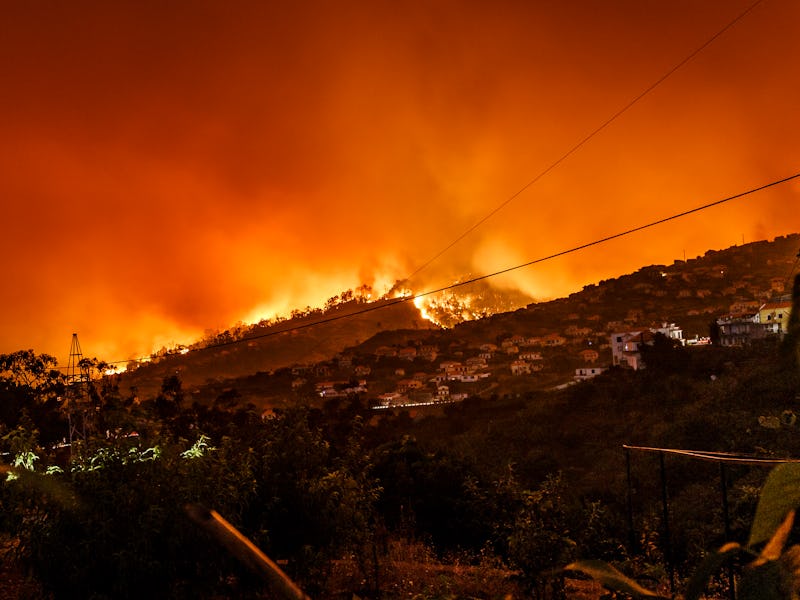UN Warns Climate Disaster Coming After 2030 Without 'Unprecedented' Shift
The IPCC has released a landmark report.

A landmark report published Monday warns that the world is heading for catastrophe if it doesn’t take urgent action to mitigate climate change. The United Nations’ Intergovernmental Panel on Climate Change claims that the planet is likely to warm to 1.5 degrees Celsius as early as 2030 if current trends continue, with severe consequences if humanity pushes past those levels.
“Limiting warming to 1.5 degrees Celsius is possible within the laws of chemistry and physics but doing so would require unprecedented changes,” Jim Skea, Co-Chair of IPCC Working Group III, said in a statement.
The global average temperature has currently risen around one degree higher than pre-industrial levels due to human activity. The Paris Agreement in 2015 committed 195 nations to ensuring this figure remains well below two degrees and taking steps to limit the increase to just 1.5 degrees — an agreement that president Donald Trump withdrew from last year, provoking widespread criticism. Monday’s report warns, however, that even keeping to the Paris Agreement’s limit would mean “rapid and far-reaching” transitions in global energy usage.
Failure could prove catastrophic. The report warns that at two degrees, more than 99 percent of the coral reefs would be destroyed, compared to between 70 to 90 percent of reefs at 1.5 degrees. The Arctic Ocean would be free of sea ice around once a decade at two degrees, compared to once a century at 1.5 degrees. The global sea level would also rise by 10 centimeters more by 2100 at 2 degrees compared to 1.5 degrees. While the Paris Agreement’s target would still mean huge environmental shifts, overshooting the target would have even worse results.
“The good news is that some of the kinds of actions that would be needed to limit global warming to 1.5 degrees Celsius are already underway around the world, but they would need to accelerate,” Valerie Masson-Delmotte, Co-Chair of Working Group I, said in a statement.
Reaching this goal would require a large-scale rethink of global resource usage. The report warns that a 1.5-degree limit would mean reducing carbon dioxide emissions by 45 percent from the levels seen in 2010 in just 12 years’ time. By the year 2050, humanity would need to reach a “net zero” state where any carbon dioxide emissions would be balanced by removing carbon dioxide from the atmosphere.
This large scale shift will require mass investment. The report claims that limiting to 1.5 degrees will require around $2.4 trillion, expressed in U.S. dollars from 2010, between the years 2016 and 2035. This would cover around 2.5 percent of global gross domestic product.
“This report gives policymakers and practitioners the information they need to make decisions that tackle climate change while considering local context and people’s needs,” Debra Roberts, Co-Chair of IPCC Working Group II, said in a statement. “The next few years are probably the most important in our history.”